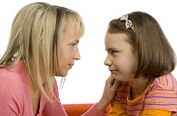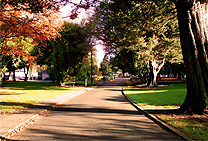Occupational Therapy Department
Occupations are everyday activities that you do to bring meaning and purpose to your life. Occupational Therapy (OT) focuses on occupations that are important to children/adolescents and their families in all areas of their lives: self-care, productivity/education, socializing, rest, play/leisure.
Occupational Therapists (OTs) acknowledge that everyday occupations play a significant part in our mental health and wellbeing. They can maintain structure, meaning and social inclusion. Occupations include the things you need to do, want to do, and are expected to do within daily life. For example, a young person attending CAMHS might need to get
more sleep at night, want to spend more time with friends and be expected to go to school. OTs can work with you individually and/or in groups/workshops. Together we look at how your mental health difficulties are impacting your ability to do everyday occupations that help you feel a sense of accomplishment, worth and satisfaction.
The OT will guide you and your parent/carer to set meaningful goals that support your recovery using an occupation-centered approach. This means that when you come to OT you will have the opportunity to set goals that are important to you in your life and to engage in different occupations.
Occupations that have a purpose and meaning to your life are often used as the therapeutic medium (e.g., baking, painting, table tennis, music, jewellery making, football, reading). This emphasis on ‘doing’ brings an opportunity to create a secure, containing and validating therapeutic space. It also fosters a therapeutic relationship between you, your parent/carer, and your OT. These interventions can promote motivation, empowerment, hope, and participation in daily occupations.
Occupational therapy is not prescriptive, so the therapeutic approach and environment are adapted continuously to meet the needs of the child/adolescent and their family. Occupational Therapists may provide interventions in clinical, school, home, or community settings.
Lynn Jenkinson
Joint Head of Occupational
Therapy Department
Nodlaig Olden
Joint Head of
Occupational Therapy
|








